20 Zen Garden Ideas: Creating Serenity in Your Backyard
A zen garden is not just any garden. It is a peaceful space for calmness and relaxation. This garden is based on Zen principles. It values simplicity along with natural elements, creating a feeling of harmony. You can choose each part and where it goes to form a spot for quiet contemplation. This place becomes a focal point where you can forget daily worries and connect with nature.
Table of Contents
1. Integrating a Karesansui (Dry Landscape) for Meditation
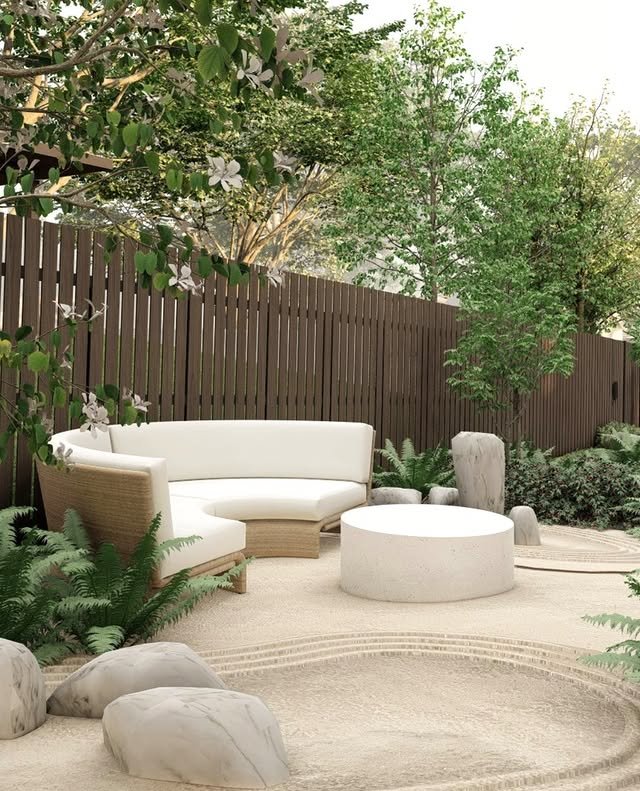
A Karesansui, or dry landscape garden, is a minimalist Zen garden design that fosters tranquility. Utilizing gravel or sand to represent water and rocks to symbolize islands and mountains, this serene space encourages meditation and relaxation, providing an escape from the demands of daily life.
2. Permaculture Zen Garden
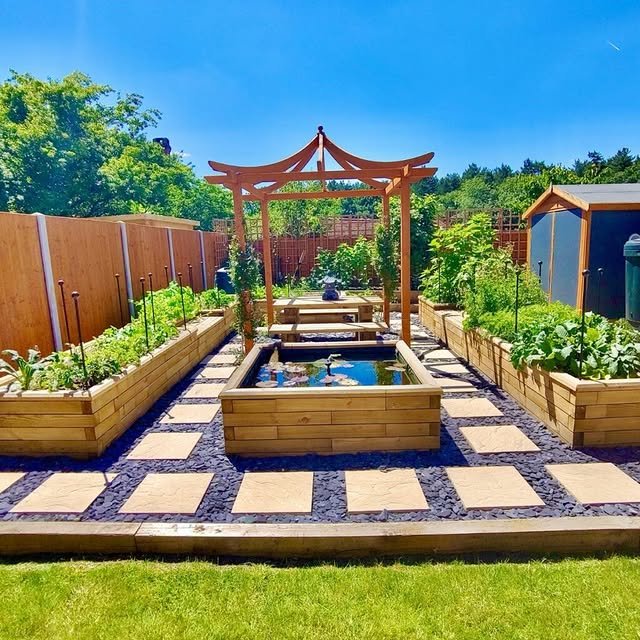
A Permaculture Zen Garden blends Zen principles with sustainable practices. This approach emphasizes harmony with nature, utilizing native plants, water conservation, and natural pest control to create a serene and self-sustaining oasis.
3. White Gravel Path Design
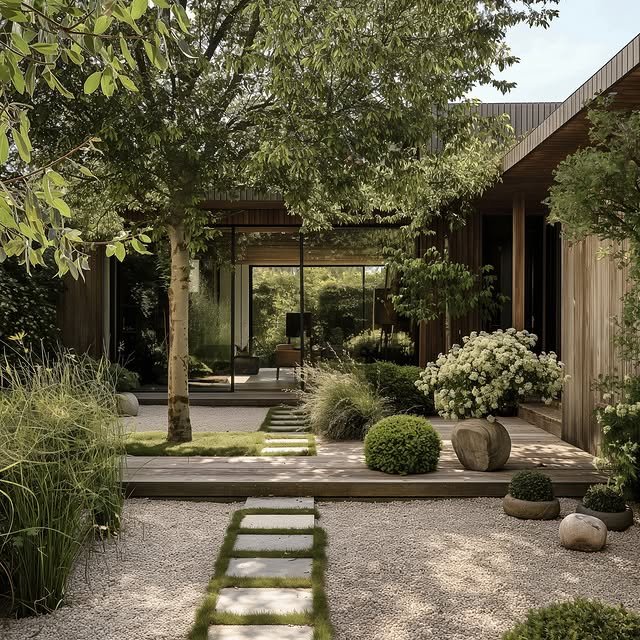
A white gravel path meanders through the Zen garden, creating a sense of calm and guiding the eye toward the focal point. Its clean lines and serene color enhance the space’s tranquility.
4. Simple Bamboo Border
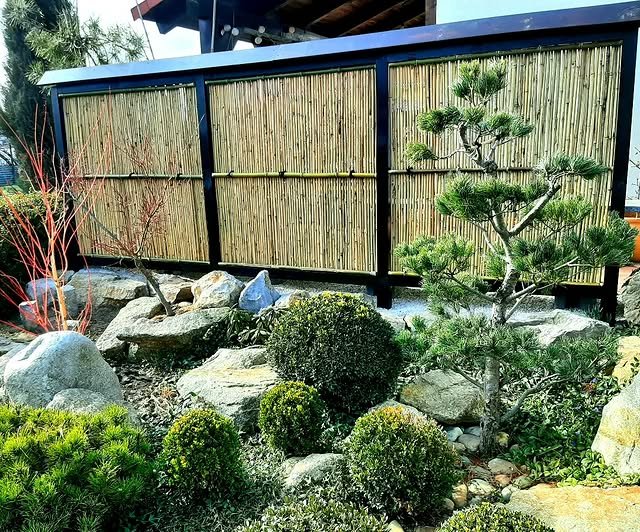
Bamboo fences offer both privacy and visual appeal in your zen garden. Bamboo creates a serene atmosphere with its soft rustling sound, whether natural or in a modern planter. This natural enclosure provides a peaceful escape within your backyard.
5. Japanese Maple Focal Point
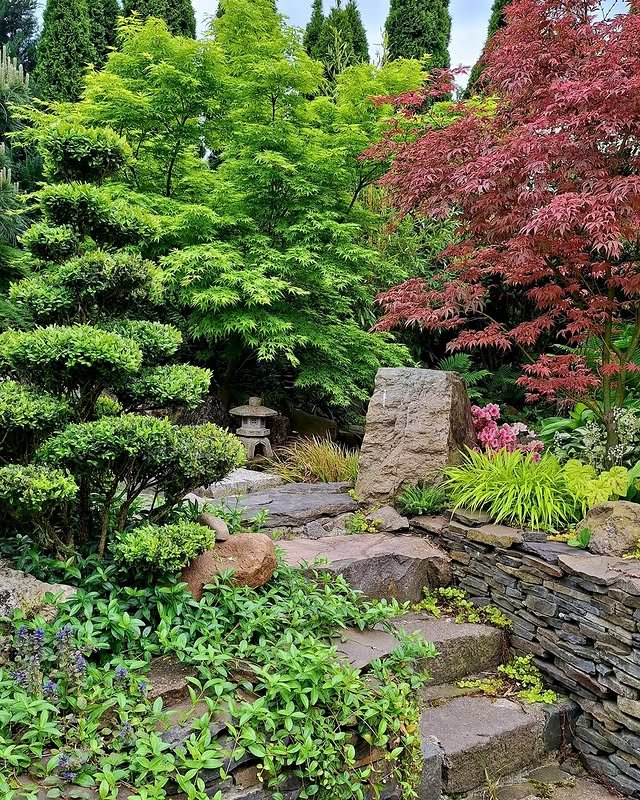
A Japanese maple adds vibrant seasonal color to a zen garden. Its foliage shifts from vibrant green in spring to fiery hues in autumn. Its elegant shape provides year-round beauty and a strong connection to nature. Select a variety that complements the scale and design of your garden.
6. Moss Garden Sanctuary
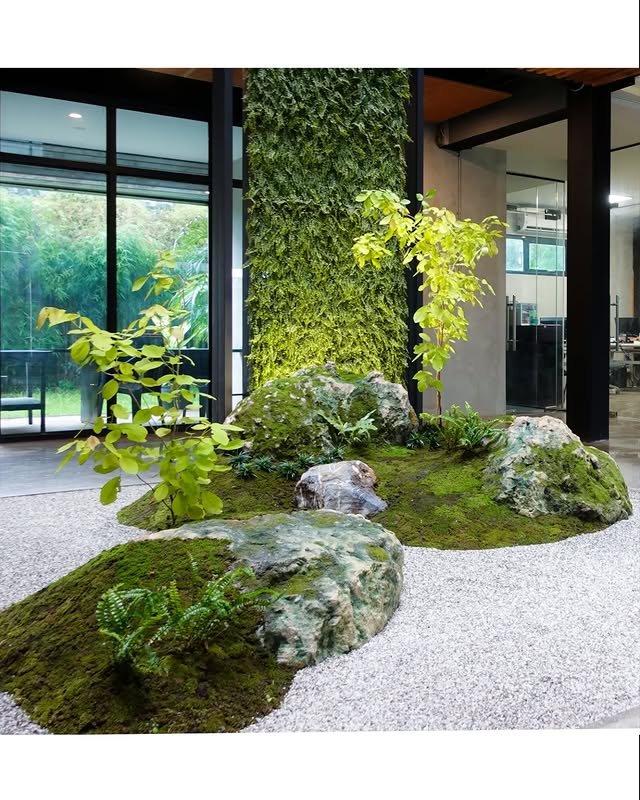
A moss garden sanctuary within a Zen garden evokes a sense of tranquility. The soft, verdant carpet of moss creates a serene and meditative atmosphere, inviting contemplation and inner peace.
7. Bonsai Display Garden
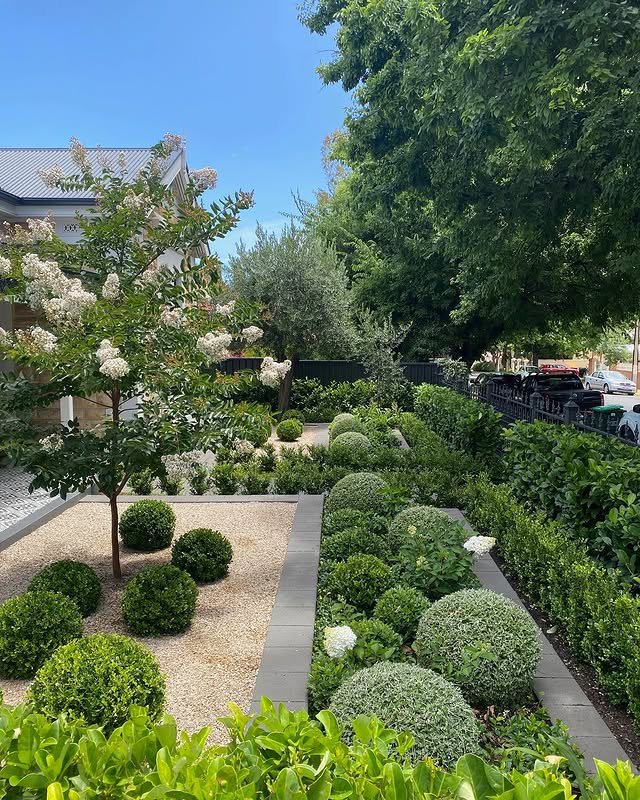
A Bonsai Display Garden introduces a captivating element to your Zen garden. These miniature trees, carefully cultivated and meticulously shaped, evoke a sense of tranquility and harmony, perfectly complementing the Zen aesthetic.
8. Covered Walkway Garden
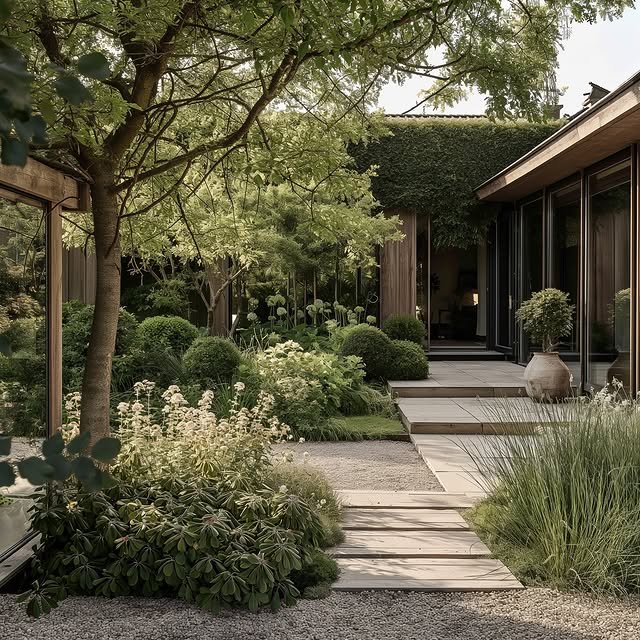
A covered walkway garden creates a serene and sheltered oasis within your Zen garden. This inviting space provides respite from the elements while offering a contemplative path through lush greenery and carefully placed elements.
9. Add a Swing Chair for Relaxation
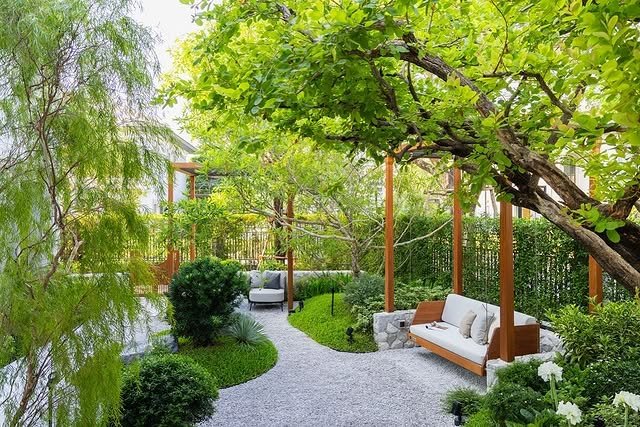
Add a swinging chair to your Zen garden for a touch of tranquility. Gently swaying in the chair amidst the calming greenery will provide a peaceful escape and enhance your Zen garden’s sense of serenity.
10. Crafting Pathways with Stepping Stones for Mindful Walks
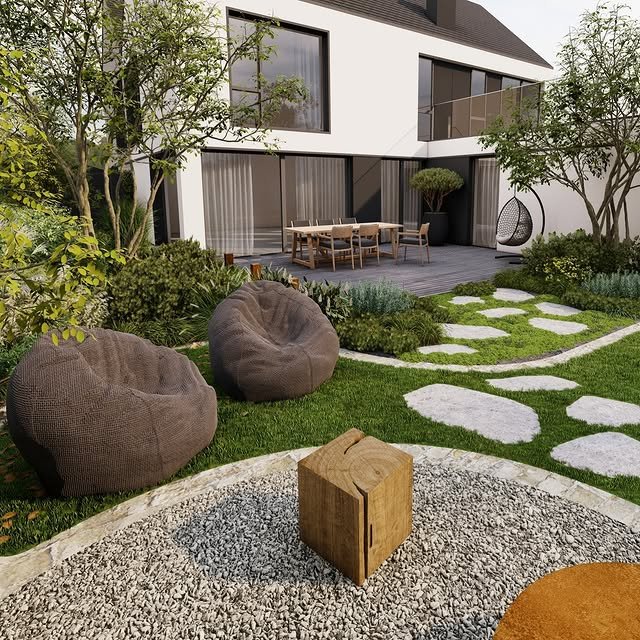
Pathways in a zen garden encourage mindfulness, particularly those with stepping stones. Stepping stones slows down your pace, making you more aware of each step and fostering a deeper connection with the surrounding nature. Consider incorporating pathways with stepping stones into your zen garden design to enhance your meditative experience.
11. Bamboo Grove Path
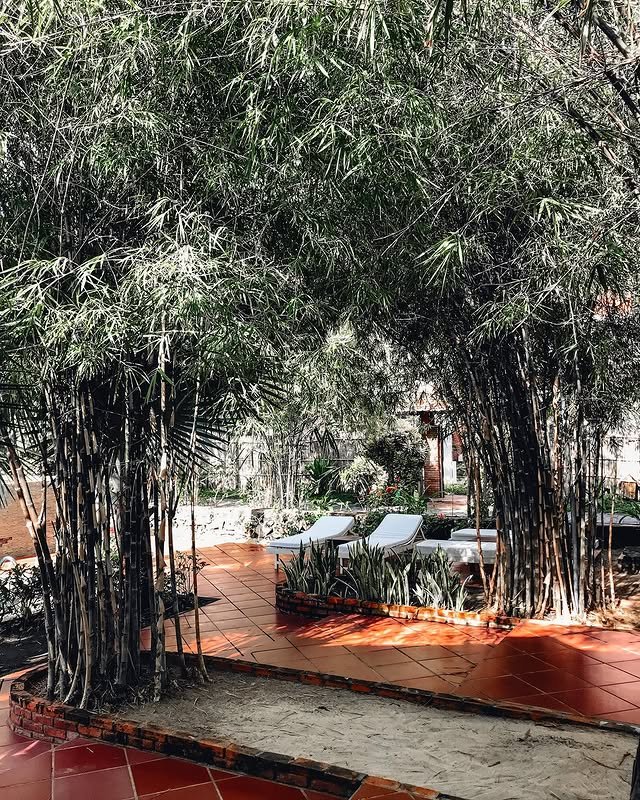
A bamboo grove path creates a serene and meditative atmosphere in a Zen garden. The rhythmic sway of the bamboo and the dappled sunlight filtering through the leaves offer a sense of tranquility and harmony.
12. Ornamental Grass Design
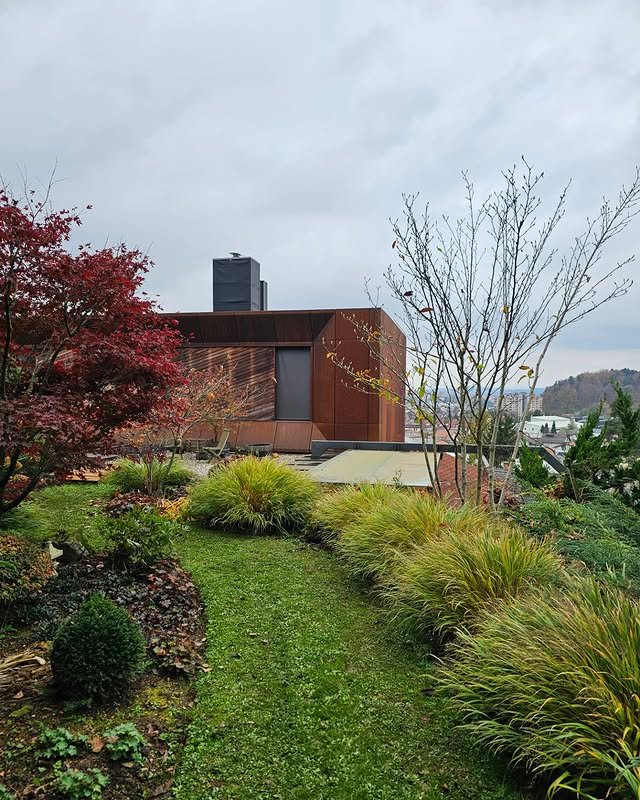
Ornamental grasses add dynamic texture and movement to a Zen garden. Their graceful forms and swaying movements create a sense of tranquility and evoke a feeling of peaceful contemplation.
13. Creating a Zen Rock Garden for Contemplation
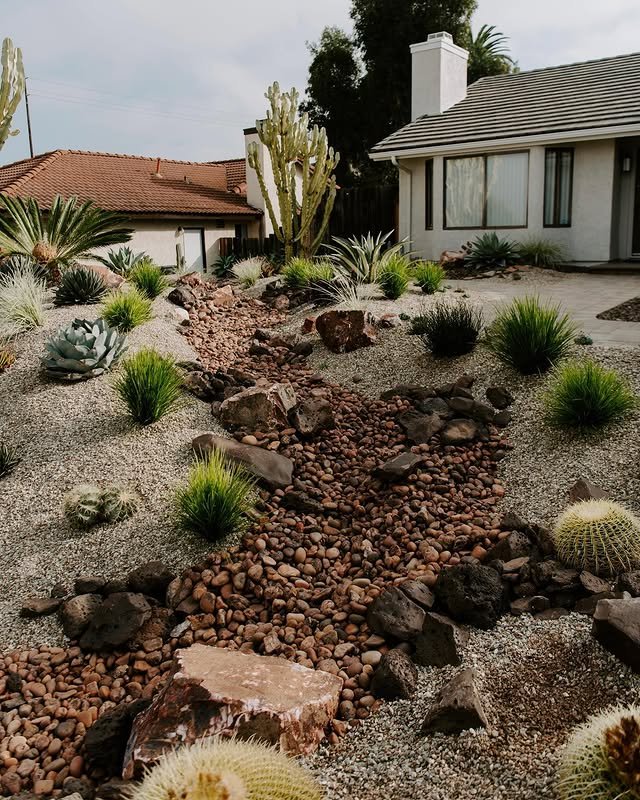
Rock gardens are a key element of Zen garden design, often featuring carefully placed rocks within raked gravel or sand. These arrangements are not merely decorative; they hold symbolic meaning and encourage contemplation. Incorporating rocks of varying shapes, sizes, and colors can create a unique and personally meaningful Zen rock garden that fosters tranquility and reflection.
14. Miniature Pine Garden
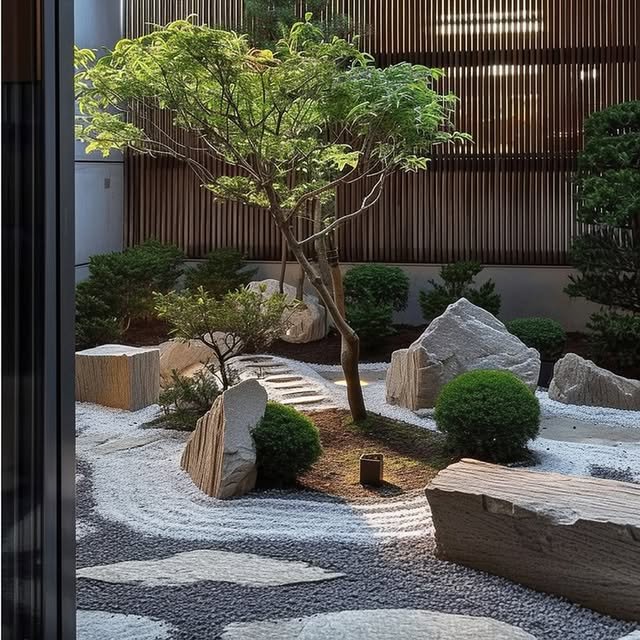
A miniature pine garden adds a touch of serene beauty to your Zen garden. Its delicate foliage and intricate branching create a sense of tranquility and evoke the essence of ancient Japanese landscapes.
15. Bridge and Stream Design
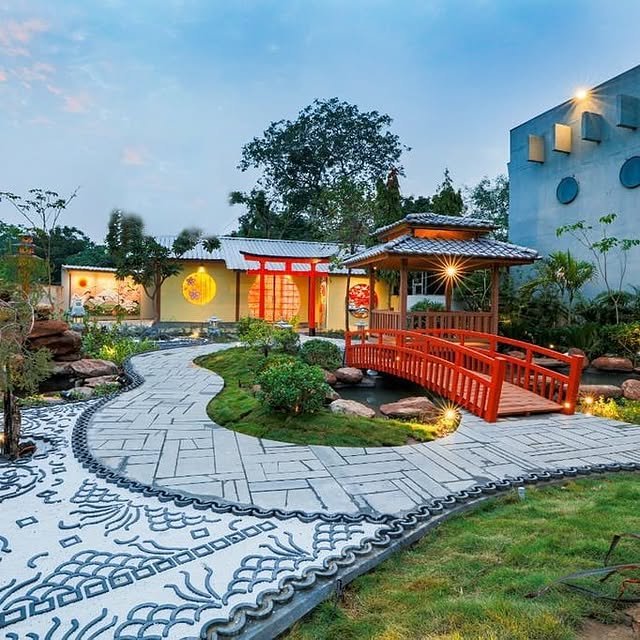
Incorporating a stream and a bridge into your Zen garden design adds a dynamic element. The flowing water symbolizes tranquility, while the bridge provides a visual focal point and a pathway for contemplation.
16. Cultivating a Space for Zen Yoga and Meditation
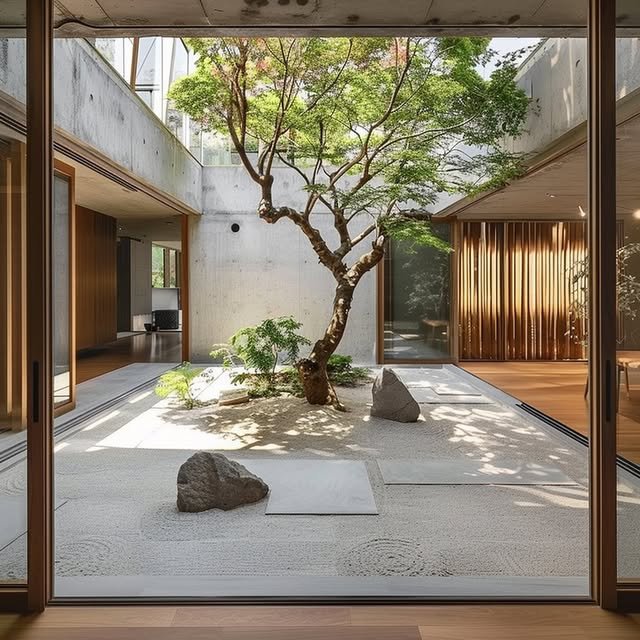
Imagine practicing yoga or meditating in your tranquil zen garden. Designate a flat spot with a yoga mat or meditation cushion, perhaps on a platform or patio stones, for a stable and comfortable practice space. This serene environment fosters mindfulness and provides a genuinely rejuvenating retreat for both body and mind.
17. Designing with Tsukubai (Water Basins) for Tranquility
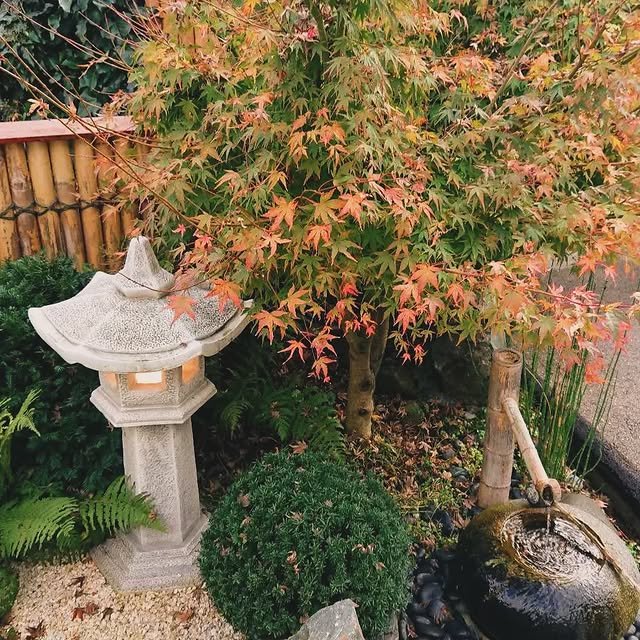
Tsukubai, water basins in Zen gardens, symbolize purity and cleansing. The gentle sound of water creates a peaceful atmosphere, inviting contemplation. Often adorned with moss or placed near pebbles, tsukubai harmonizes with natural elements, adding a calming touch to your garden.
18. Contemporary Sculpture Garden
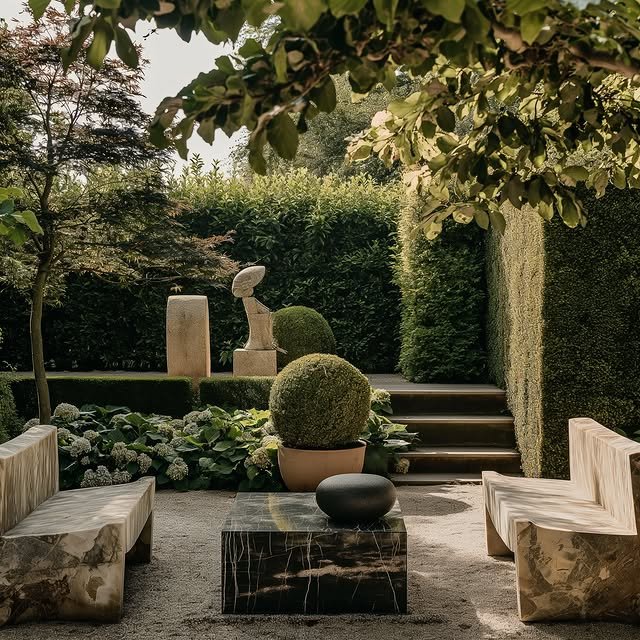
A contemporary sculpture garden introduces a modern aesthetic to the traditional Zen garden. This unexpected juxtaposition creates a dynamic interplay between ancient principles of tranquility and contemporary artistic expression.
19. Adding a Shishi-Doshi (Deer Scarer) for Soundscapes
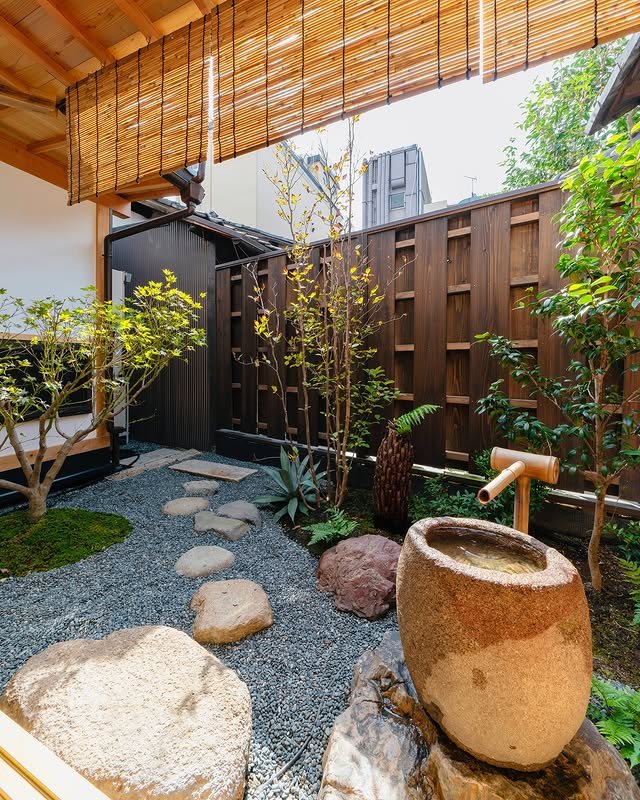
The shishi-odoshi, a traditional Japanese deer deterrent, introduces a soothing sound element to your zen garden. The rhythmic flow of water through this bamboo device creates a calming atmosphere, inviting peace and tranquility to your outdoor space.
20. Ripple Pattern Garden
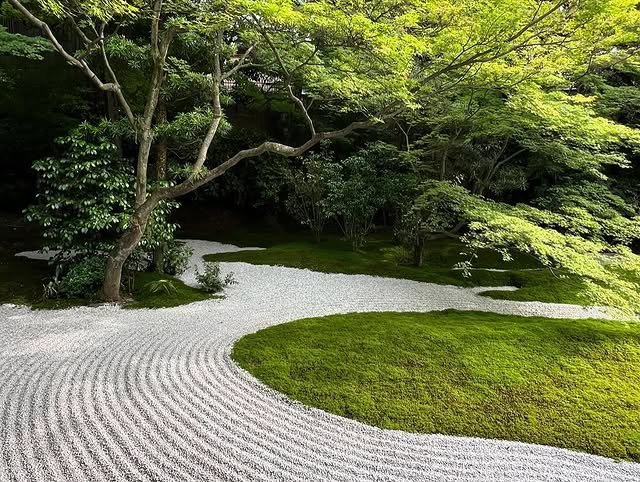
Incorporate a ripple pattern into your Zen garden design. This dynamic element, created with gravel or sand, evokes the tranquility of water and invites contemplation, adding a touch of movement to the serene space.
